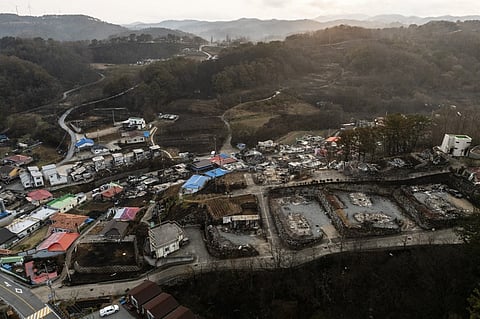
- NEWS
- the EDIT
- COMMENTARY
- BUSINESS
- LIFE
- SHOW
- ACTION
- GLOBAL GOALS
- SNAPS
- DYARYO TIRADA
- MORE

Destructive wildfires that hit South Korea are almost contained, according to Korean authorities on 28 March, following rains and cooler temperatures that helped firefighting crews put out the blaze that has killed nearly 28 people since 21 March.
On 29 March, Department of Migrant Workers (DMW) Secretary Hans Cacdac confirmed that there were no reported casualties among Filipinos in affected areas, including Uiseong, Andong, Cheongsong, Yeongyang, and Yeongdok. He also reported that around 48,000 hectares of forest land were scorched in the southeastern region of the country.
“The good news is, no Filipinos were reported to have been harmed by the devastating wildfire,” he said.
In other developments, Cacdac confirmed that around 90 percent of Filipinos who participated in the pilot caregiver program in South Korea will be renewed for another two-year extension.
“There’s an ongoing review to determine whether the caregiving program will be made permanent, rather than just a pilot initiative,” he added.
On 28 March, the DMW advised prospective Filipino jobseekers under Korea’s Employment Permit System to take Korean language proficiency programs at Technical Education and Skills Development Authority (TESDA)-accredited institutions in preparation for the Korean language proficiency test.
He also noted that hiring for seasonal farm workers remains ongoing. This program allows Filipinos to work in the agriculture sector for at least eight months, with recruitments facilitated by local governments.
To protect Filipino workers from exploitative recruitment fees, the DMW is drafting a joint circular with the Department of the Interior and Local Government to prevent illegal broker systems.
“In the past, broker recruitment was rampant, charging exorbitant fees just to place workers,” Cacdac said. “Around 10,000 Filipino workers have been deployed so far, and since the DMW took over, there have been no major reported incidents of abuse.”
